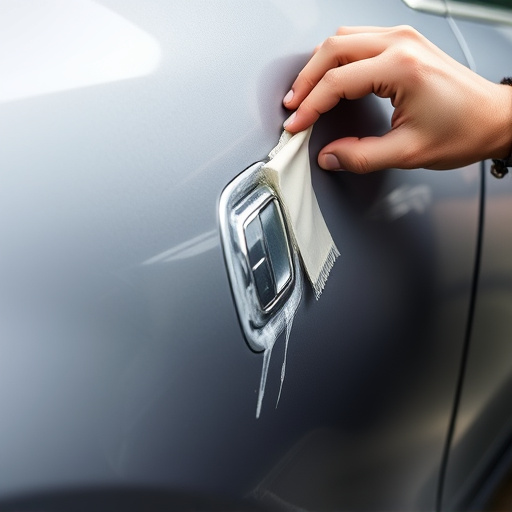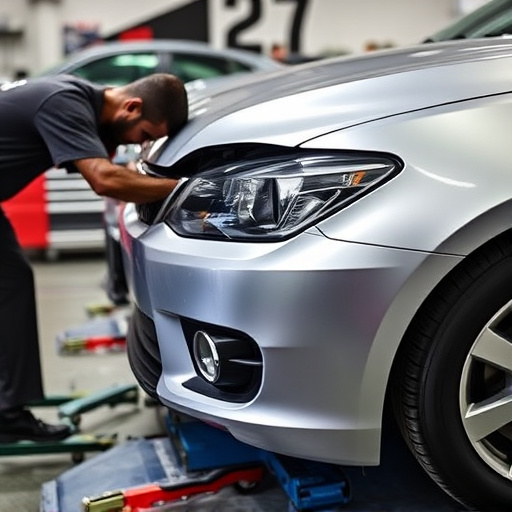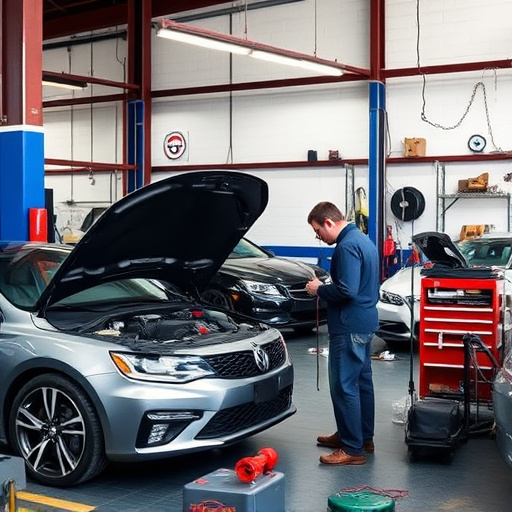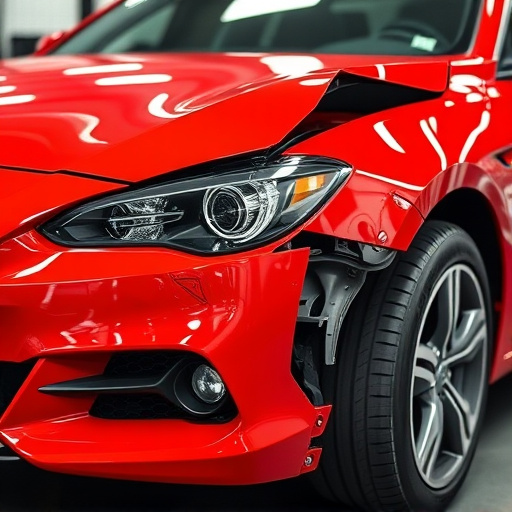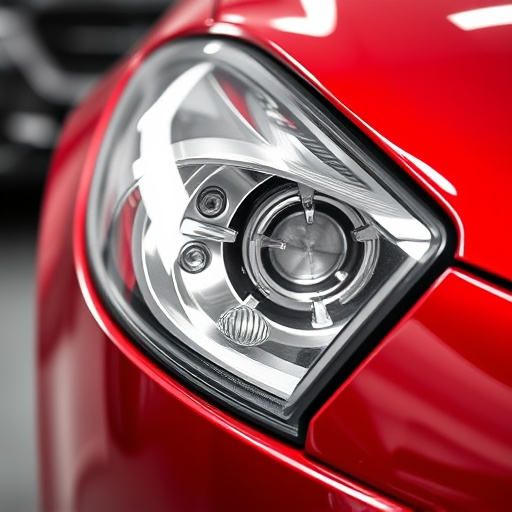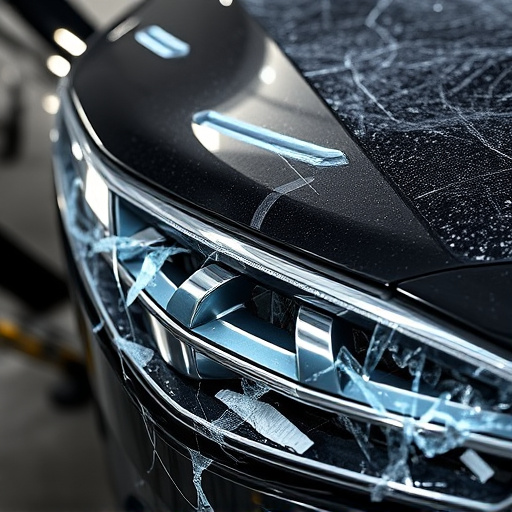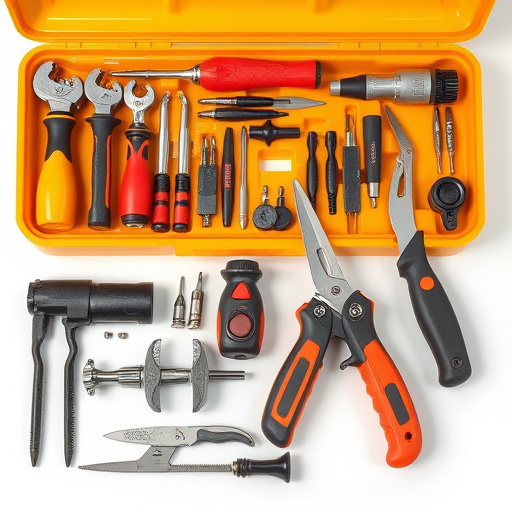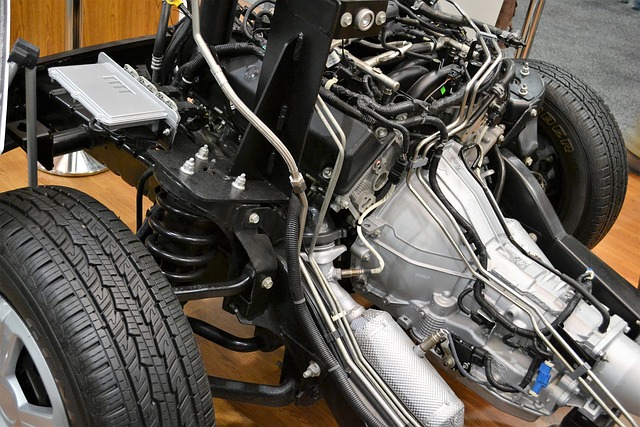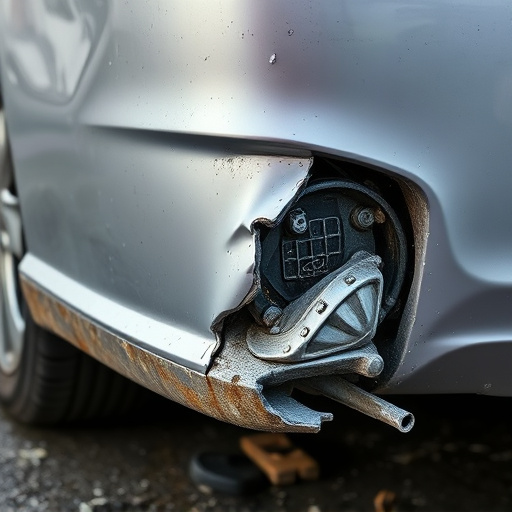The factory finish on vehicles, crucial for both aesthetics and protection, demands meticulous craftsmanship, especially with aluminum body components and growing carbon fiber parts popularity. Specialized auto body shops use advanced techniques to replicate these finishes flawlessly, preserving structural integrity and original value. Aluminum's smooth surface and corrosion resistance facilitate precise painting, while its lightweight nature enhances structural soundness. Carbon fiber components, lighter and stronger than traditional metal, offer exceptional durability and aesthetic appeal, ideal for repairing damaged bodies and maintaining overall vehicle value.
Aluminum body components are revolutionizing automotive manufacturing, ensuring factory finish matching that was once thought impossible. This article delves into the science behind achieving consistent, high-quality finishes on aluminum, exploring its unique properties and role in modern car design. We also examine the integration of carbon fiber components, which not only enhance durability but also contribute to the overall aesthetic appeal of today’s sleek and sophisticated vehicles.
- Understanding Factory Finish Matching Importance
- Aluminum's Role in Achieving Consistent Finishes
- Carbon Fiber Components: Enhancing Durability & Aesthetics
Understanding Factory Finish Matching Importance
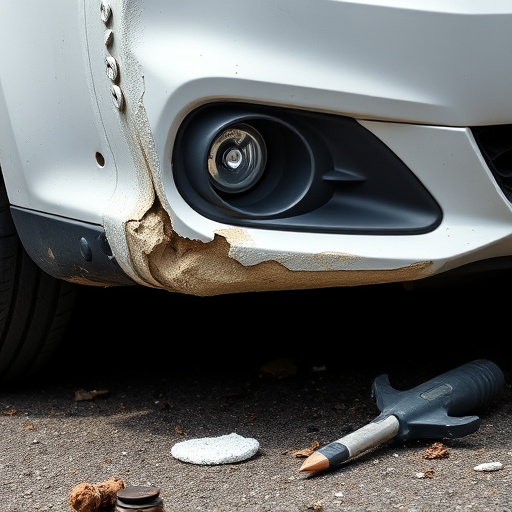
The factory finish on a vehicle is more than just aesthetics; it’s a protective layer that ensures the car’s exterior remains durable and maintains its original look. When discussing aluminum body components, achieving perfect factory finish matching becomes paramount. This is especially true when considering the growing popularity of carbon fiber components, which offer enhanced performance but demand meticulous craftsmanship to match the precision of factory finishes.
In auto body services and fender repair, achieving this level of precision isn’t just about satisfying cosmetic expectations; it’s also about protecting the vehicle’s structural integrity. An automotive body shop that specializes in aluminum body work must employ advanced techniques and tools to ensure that every curve, contour, and detail of the factory finish is replicated flawlessly. This attention to detail is what sets apart a quality auto body shop from its competitors, ensuring customers receive a restoration or repair that not only looks great but also maintains the vehicle’s original value and condition.
Aluminum's Role in Achieving Consistent Finishes
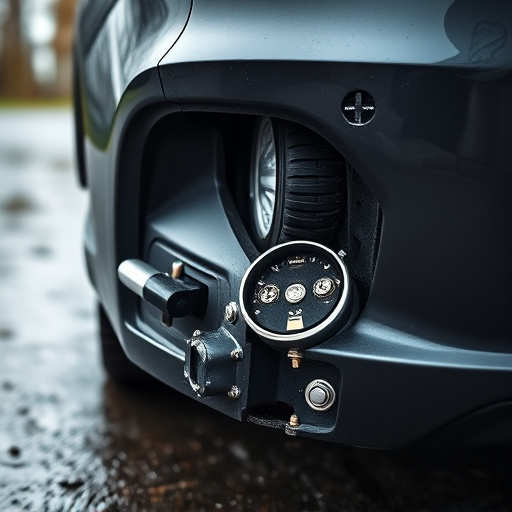
Aluminum plays a pivotal role in achieving consistent finishes across various automotive applications, particularly when integrating with carbon fiber components. Its inherent properties make it an ideal choice for modern car bodywork services, ensuring that luxury vehicle repairs maintain a flawless finish. The metal’s smooth surface and exceptional corrosion resistance allow for precise painting and coating, resulting in a seamless blend with the surrounding body panels.
Moreover, aluminum’s lightweight nature is advantageous when considering the overall structural integrity of a vehicle. In contrast to heavier metals, it can be easily formed, shaped, and welded, enabling intricate designs while maintaining excellent durability. This precision craftsmanship is essential for achieving factory-like finishes, especially in scratch repair cases, where the goal is to restore the car’s exterior to its original condition without compromising on aesthetics or structural soundness.
Carbon Fiber Components: Enhancing Durability & Aesthetics
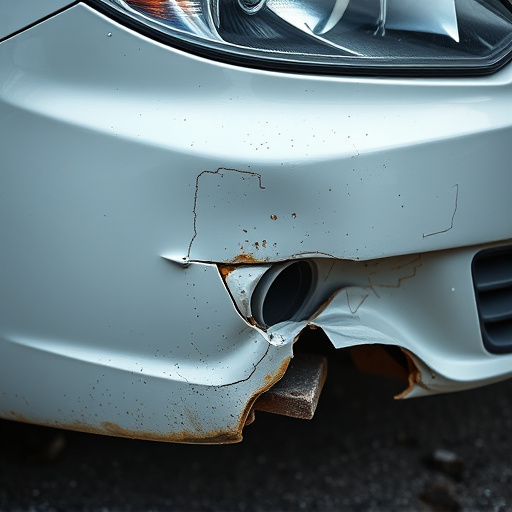
Carbon fiber components have emerged as a game-changer in the automotive industry, offering unparalleled durability and aesthetic appeal. Unlike traditional metal parts, carbon fiber is lighter, stronger, and more rigid, making it an ideal choice for modern vehicle manufacturing. Its unique properties not only contribute to improved performance but also ensure that cars maintain their pristine finish over time.
In the realm of car restoration and auto repair near me, carbon fiber components play a crucial role in repairing and enhancing vehicles. The material’s ability to resist dents and scratches makes it an excellent choice for restoring damaged bodies. Moreover, its seamless integration with factory finishes ensures that repairs are virtually invisible, maintaining the vehicle’s overall aesthetic value. This not only saves time and money but also guarantees a more satisfying restoration experience.
In conclusion, achieving factory finish matching with aluminum body components is paramount for maintaining a vehicle’s aesthetic integrity. Aluminum’s inherent properties, combined with advanced manufacturing techniques, ensure consistent and durable finishes. Furthermore, integrating carbon fiber components offers enhanced durability and visual appeal, making it an optimal choice for modern automotive design. This fusion of materials revolutionizes the industry, providing both performance and style in one seamless package.
